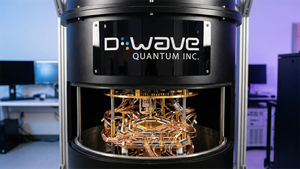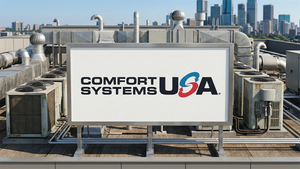
Semiconductor production equipment company Kulicke & Soffa (NASDAQ: KLIC) met Wall Street’s revenue expectations in Q3 CY2024, but sales fell 10.4% year on year to $181.3 million. On the other hand, next quarter’s revenue guidance of $165 million was less impressive, coming in 8% below analysts’ estimates. Its non-GAAP profit of $0.34 per share was 3.5% below analysts’ consensus estimates.
Is now the time to buy Kulicke and Soffa? Find out by accessing our full research report, it’s free.
Kulicke and Soffa (KLIC) Q3 CY2024 Highlights:
- Revenue: $181.3 million vs analyst estimates of $180.3 million (in line)
- Adjusted EPS: $0.34 vs analyst expectations of $0.35 ($0.01 miss)
- Adjusted Operating Income: $12.69 million vs analyst estimates of $15.87 million ($3.2 million miss)
- Revenue Guidance for Q4 CY2024 is $165 million at the midpoint, below analyst estimates of $179.4 million
- Adjusted EPS guidance for Q4 CY2024 is $0.28 at the midpoint, below analyst estimates of $0.33
- Gross Margin (GAAP): 48.3%, in line with the same quarter last year
- Inventory Days Outstanding: 173, up from 165 in the previous quarter
- Operating Margin: 1.5%, down from 9.6% in the same quarter last year
- Free Cash Flow Margin: 16.1%, down from 33.7% in the same quarter last year
- Market Capitalization: $2.62 billion
Fusen Chen, Kulicke & Soffa's President and Chief Executive Officer, stated, "We continue to drive market adoption of our advanced packaging and assembly solutions including vertical wire, high-power interconnect (HPI), advanced dispense and fluxless thermo-compression (FTC). Demand for these solutions is anticipated to accelerate along with coordinated General Semiconductor and Automotive market recovery through fiscal year 2025."
Company Overview
Headquartered in Singapore, Kulicke & Soffa (NASDAQ: KLIC) is a provider of production equipment and tools used to assemble semiconductor devices
Semiconductor Manufacturing
The semiconductor industry is driven by demand for advanced electronic products like smartphones, PCs, servers, and data storage. The need for technologies like artificial intelligence, 5G networks, and smart cars is also creating the next wave of growth for the industry. Keeping up with this dynamism requires new tools that can design, fabricate, and test chips at ever smaller sizes and more complex architectures, creating a dire need for semiconductor capital manufacturing equipment.
Sales Growth
Examining a company’s long-term performance can provide clues about its business quality. Any business can put up a good quarter or two, but the best consistently grow over the long haul. Regrettably, Kulicke and Soffa’s sales grew at a tepid 5.5% compounded annual growth rate over the last five years. This fell short of our expectations and is a sign of lacking business quality. Semiconductors are a cyclical industry, and long-term investors should be prepared for periods of high growth followed by periods of revenue contractions.
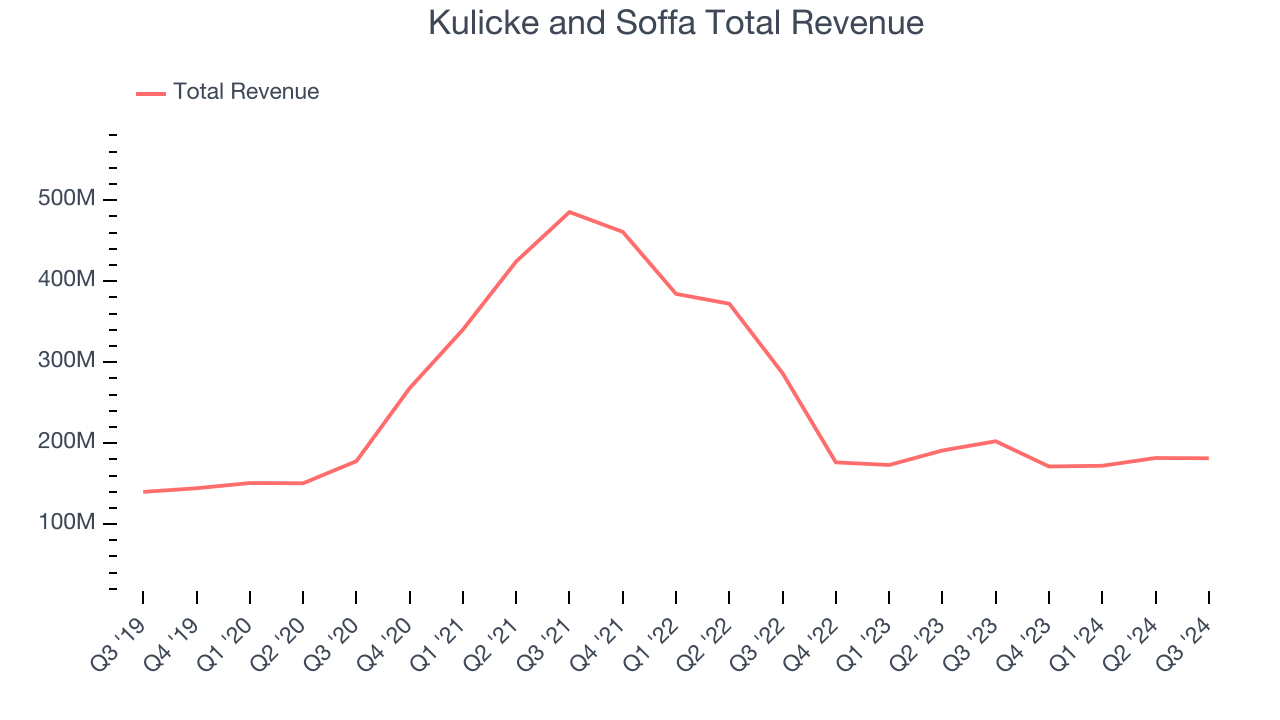
We at StockStory place the most emphasis on long-term growth, but within semiconductors, a half-decade historical view may miss new demand cycles or industry trends like AI. Kulicke and Soffa’s history shows it grew in the past but relinquished its gains over the last two years, as its revenue fell by 31.5% annually. 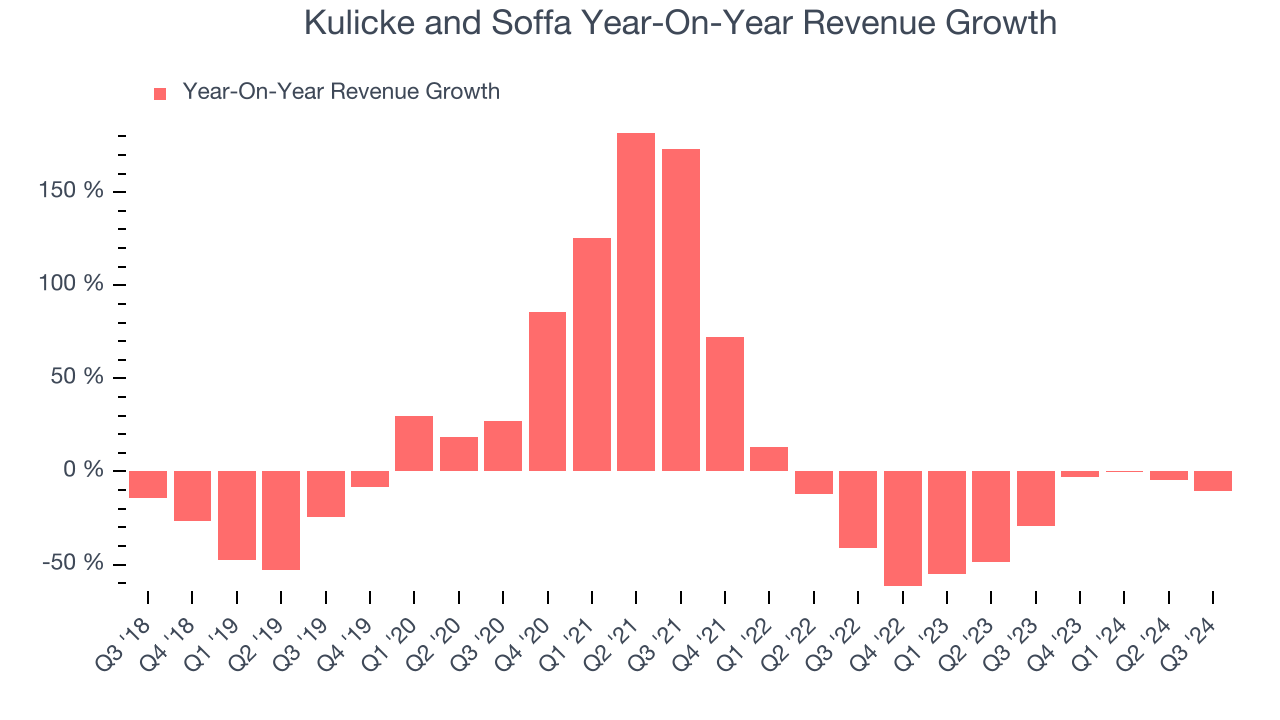
This quarter, Kulicke and Soffa reported a rather uninspiring 10.4% year-on-year revenue decline to $181.3 million of revenue, in line with Wall Street’s estimates. Company management is currently guiding for a 3.6% year-on-year decline next quarter.
Looking further ahead, sell-side analysts expect revenue to grow 11.3% over the next 12 months, an improvement versus the last two years. This projection is healthy and indicates its newer products and services will fuel higher growth rates.
Unless you’ve been living under a rock, it should be obvious by now that generative AI is going to have a huge impact on how large corporations do business. While Nvidia and AMD are trading close to all-time highs, we prefer a lesser-known (but still profitable) semiconductor stock benefitting from the rise of AI. Click here to access our free report on our favorite semiconductor growth story.
Product Demand & Outstanding Inventory
Days Inventory Outstanding (DIO) is an important metric for chipmakers, as it reflects a business’ capital intensity and the cyclical nature of semiconductor supply and demand. In a tight supply environment, inventories tend to be stable, allowing chipmakers to exert pricing power. Steadily increasing DIO can be a warning sign that demand is weak, and if inventories continue to rise, the company may have to downsize production.
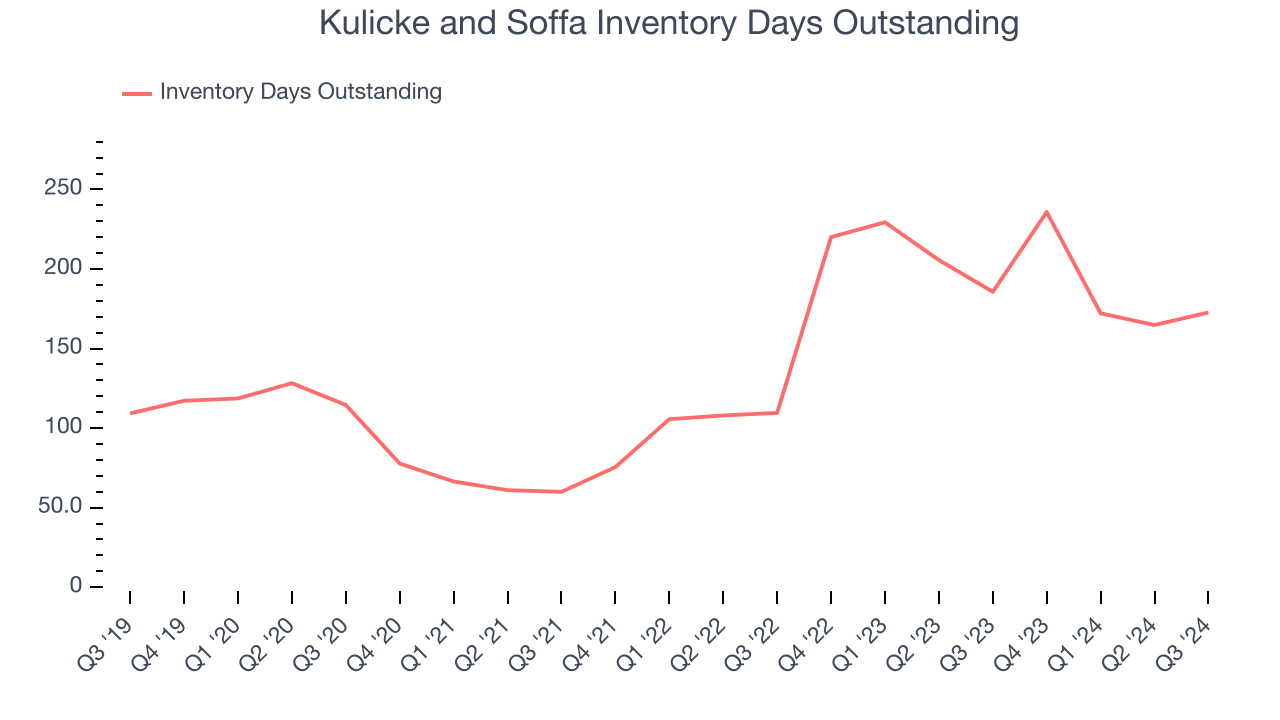
This quarter, Kulicke and Soffa’s DIO came in at 173, which is 36 days above its five-year average, suggesting that the company’s inventory has grown to higher levels than we’ve seen in the past.
Key Takeaways from Kulicke and Soffa’s Q3 Results
We struggled to find many resounding positives in these results. Its revenue guidance for next quarter missed analysts’ expectations and its inventory levels increased. Overall, this was a softer quarter. The stock traded down 2.2% to $46.00 immediately after reporting.
Kulicke and Soffa’s earnings report left more to be desired. Let’s look forward to see if this quarter has created an opportunity to buy the stock. We think that the latest quarter is only one piece of the longer-term business quality puzzle. Quality, when combined with valuation, can help determine if the stock is a buy. We cover that in our actionable full research report which you can read here, it’s free.


